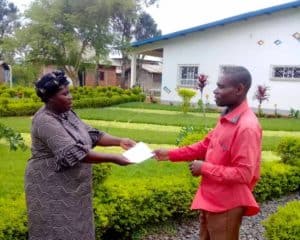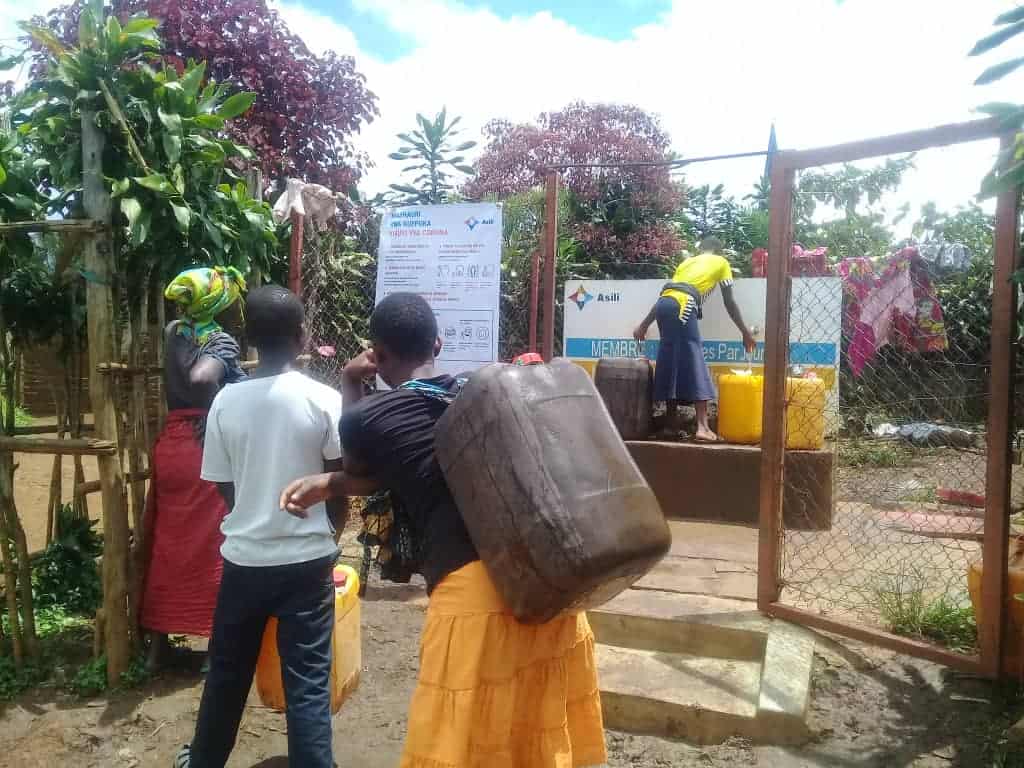
An unprecedented crisis demands a new response.
Traditional humanitarian aid is built for emergencies, not for people. Temporary services built to minimal quality standards — the usual response to global crisis — leaves the people it’s designed to help worse off than they were before. At the scale of a global pandemic, traditional humanitarian investment will waste incalculable amounts of money and resources on low-quality aid that leaves vulnerable communities worse off than before. At Asili, we know we can do better — because we do better every day.
The Asili business model uses crisis funding to build world-class services that last long after the crisis has passed.
Asili reinvents humanitarian aid as startup capital for self-sustaining social enterprises, operated by and for the people who need them. In eastern Congo, Asili water systems and health clinics are already serving 120,000 people every day. During the coronavirus pandemic, Asili services are a vital lifeline for Congolese people — and they show how a new approach to humanitarian aid can strengthen economies, dignify human lives, and build enduring communities.
On the ground: Asili responds to COVID-19

Asili water is good for drinking and for washing your hands. These are some of the handwashing stations outside Asili water points, April 2020. Photo: Salomé Kaliza 
Two fontainières model their new masks and gloves at an Asili water point in April 2020. Photo: Salomé Kaliza 
In the absence of official public health messaging, the Asili medical team used WHO guidance to develop this easy-to-read guidance and distributed it throughout our service area. Photo: Salomé Kaliza 
Customers pause to read about COVID-19 at an Asili water point. Photo: Salomé Kaliza 
Customers read tips for slowing the spread of COVID-19 at an Asili water point in April 2020. Photo: Salomé Kaliza
Asili operates water points and medical clinics that serve 120,000 people every day throughout South Kivu, DRC — lifesaving infrastructure during the pandemic. Our top priority is keeping Asili services available. As the coronavirus spreads through South Kivu, Asili staff are at the center of government and community efforts to flatten the curve of COVID-19 infections. We’re adapting quickly to help. Asili teams are rapidly prototyping new ways to respond to the changing conditions of the pandemic in real time. What we learn from these experiences will strengthen Asili services for the long term.
Asili principles
- LASTING IMPACT. Because Asili businesses are permanent, one-time gifts keep doing good permanently.
- AFFORDABLE SERVICES. Asili businesses have to be affordable so that the people they serve can use them, without permanent subsidies from abroad.
- SUSTAINABLE BUSINESS. Unlike traditional aid, Asili businesses turn a profit — and reinvest in their communities.
- RADICAL ACCOUNTABILITY is the heart of our work. We don’t provide aid for victims — we build businesses that serve customers.
A NEW TIMELINE
Crisis response.
Sustainable recovery.
Lasting improvement.
The Asili model uses philanthropic funding at the front end to build infrastructure that survives any crisis. That infrastructure can serve people for free during a crisis, but return to charging market prices once the emergency is over. Those customer fees then get reinvested into the community.
CRISIS RESPONSE. Philanthropy invests in vital service infrastructure in partnership with the community
EMERGENCY SUPPORT. While the crisis lasts, giving subsidizes customers’ access to services.
RECOVERY. As the community recovers, customers gradually start paying for services on their own.
SUSTAINABILITY. With consistent quality, services become profitable at prices communities can afford.
PERMANENT IMPACT. Consistent profits can be reinvested in the community, strengthening essential infrastructure and improving quality of life for everyone.
Learn more about our work in the fight against the coronavirus in eastern Congo.
